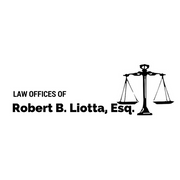
In a will, you decide what happens to property and assets after you pass away. This legally binding document ensures your loved ones are taken care of in the ways you intend. In addition to a rundown of assets and beneficiary designations, here are a few other essentials that a solid will should include.
What Should You Include in a Will?
1. Executor
A will must name an executor to handle the many crucial responsibilities central to resolving and closing the estate. The executor files a probate case with the local courts, notifies beneficiaries, oversees the smooth distribution of assets, and pays debts and taxes from the estate funds.
An executor typically knows beforehand that you’ll be appointing them to this critical role. If you overlook naming one, there's a possibility no one will know about the document. That leaves you with an intestate estate, meaning that the courts must decide what happens to your assets.
2. Guardianships
 If you have minor or adult dependent children, a will is the place to appoint legal guardians for them. You can name the guardian, make specific requests for how the children should be raised, and direct the guardian to funds you've set aside for the care of the children.
If you have minor or adult dependent children, a will is the place to appoint legal guardians for them. You can name the guardian, make specific requests for how the children should be raised, and direct the guardian to funds you've set aside for the care of the children.
Many people also do this for their pets. As happens when omitting an executor, neglecting to appoint guardians will require the courts to make determinations that you would not have wanted.
3. Smaller Assets
It's easy to remember all of the higher-value assets that you want your beneficiaries to receive, like homes, vehicles, and the funds in various accounts. Smaller-value assets, however, can get overlooked, and these items may have sentimental meaning for those you love.
You may have a family heirloom, a beloved artwork, or a special collection that you want specific loved ones to have. Make sure the inventory of your estate is exhaustive and includes these smaller belongings.
When you need assistance designing a will, contact the Law Offices of Robert B. Liotta, Esq. Since 2000, they’ve served Westmoreland, Allegheny, and Armstrong counties in Pennsylvania. They offer representation in estate planning, real estate, personal injury, and divorce cases. Call (724) 334-9870 to schedule a consultation, or visit their website to learn more about their practice areas.
About the Business
Have a question? Ask the experts!
Send your question

